
New findings reveal that adding durvalumab to neoadjuvant chemotherapy does not enhance HRQOL in muscle-invasive bladder cancer patients.

Your AI-Trained Oncology Knowledge Connection!


New findings reveal that adding durvalumab to neoadjuvant chemotherapy does not enhance HRQOL in muscle-invasive bladder cancer patients.

Updated safety findings may support the ARASAFE regimen as a potential standard of care in metastatic hormone-sensitive prostate cancer.

Sasanlimab plus BCG significantly improved event-free survival in BCG-naïve, high-risk NMIBC patients, with notable benefit in carcinoma in situ and T1 tumors.

Data show improvements in overall survival and time to subsequent therapy initiation with darolutamide plus ADT/docetaxel.
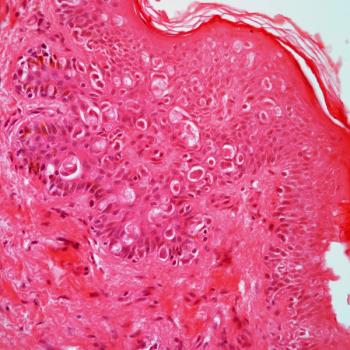
Pembrolizumab plus platinum-containing therapy may be a new treatment option for advanced penile cancer based on data from the HERCULES trial.

The rate of subsequent anticancer therapy was reduced with darolutamide vs placebo in patients with mHSPC in the ARASENS trial.

Phase 2 data support the potential of replacing cisplatin with nab-paclitaxel as a backbone therapy for those with muscle-invasive bladder cancer.

Findings from the CheckMate-901 study support the use of frontline nivolumab plus gemcitabine/cisplatin in advanced urothelial carcinoma.

Four of 5 patients with prostate cancer and ctDNA positivity had disease progression following treatment with darolutamide plus androgen deprivation therapy in a phase 2 trial.

Patients receiving neoadjuvant chemotherapy plus radical nephroureterectomy for upper tract urothelial carcinoma appear more likely to experience nodal downstaging.

Median radiographic progression-free survival appears to be higher in patients with metastatic castration-resistant prostate cancer treated with 177Lu-PSMA-617 than those receiving androgen receptor pathway inhibitors.
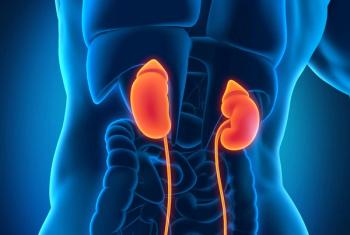
Belzutifan plus cabozantinib showed continued anti-tumor activity in patients with clear cell renal cell carcinoma.
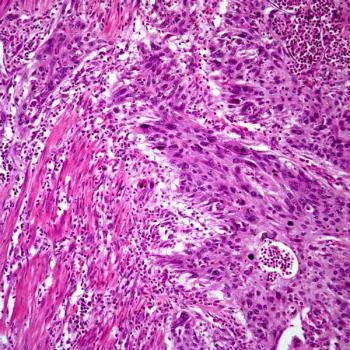
Pembrolizumab in combination with enfortumab vedotin-ejfv demonstrates a manageable safety profile in the treatment of metastatic urothelial carcinoma in the EV-103 trial.

The treatment discontinuation rate was 30.4% for darolutamide, 40.8% for enzalutamide, and 46.0% for apalutamide among patients with nonmetastatic prostate cancer, according to a recent analysis.

Pembrolizumab appears to achieve antitumor activity in terms of disease-free survival in patients with Bacillus calmette-guerin–unresponsive, papillary high–risk, non-muscle invasive bladder cancer.

Long-term safety data from the phase 3 ARAMIS rollover trial support the use of darolutamide in patients with nonmetastatic castration-resistant prostate cancer, according to an expert from the Carolina Urologic Research Center.

All patients with chemo-naïve metastatic castration-resistant prostate cancer experienced PSA decline, and half the cohort experienced a PSA decline greater than 50% after treatment with a novel PSMA-targeted radionuclide therapy.
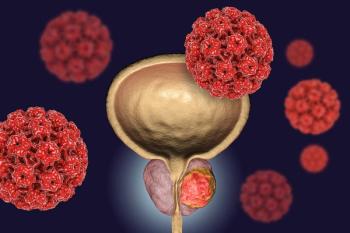
Findings from Cohort K of the EV-103 trial demonstrated a 64.5% overall response rate with enfortumab vedotin plus pembrolizumab in metastatic urothelial cancer.
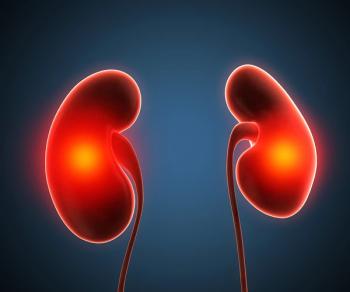
Phase 3 data regarding perioperative nivolumab did not show recurrence-free survival benefit, but data from the study may help inform future research.

Metastatic progression pattern with darolutamide appears to be unaltered in nonmetastatic castration-resistant prostate cancer, despite the agent resulting in better survival outcomes.

Unlike with enzalutamide, it appears darolutamide does not affect systemic exposure of cabazitaxel in patients with metastatic castration-resistant prostate cancer.

Similar overall survival, better patient-reported outcomes, and fewer adverse effects were observed when patients were treated with 177Lu-PSMA-617 vs cabazitaxel in metastatic castration-resistant prostate cancer.

An exploratory analysis of the JAVELIN Bladder 100 study indicated long-term overall survival benefit for patients with advanced urothelial carcinoma who received avelumab maintenace, without regard for treatment given in the second-line setting.

Results from the phase 2 ATLANTIS trial did not show a benefit of cabozantinib in patients with advanced urothelial carcinoma compared with the placebo, but the treatment appeared to be tolerable.
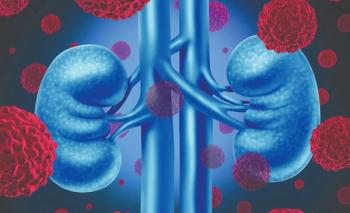
Updated data from the KEYNOTE-564 trial that were reported at 2022 ASCO GU show continuous disease-free survival advantage with pembrolizumab vs placebo as adjuvant therapy for renal cell carcinoma.

Data from the ARAMIS trial that were presented at 2022 ASCO GU showed that darolutamide benefit for patients with nonmetastatic castration-resistant prostate cancer was consistent regardless of the number of comorbidities or concomitant medications.

Patients with metastatic castration-resistant prostate cancer experienced an improvement in prostate-specific antigen following treatment with pembrolizumab and olaparib.

Adding abiraterone acetate and prednisone to androgen-deprivation therapy and docetaxel improved radiographic progression-free survival for men with de novo metastatic castration-sensitive prostate cancer.

Disparities regarding comprehensive genomic profiling came to light during a presentation at the 2021 ASCO Annual Meeting.
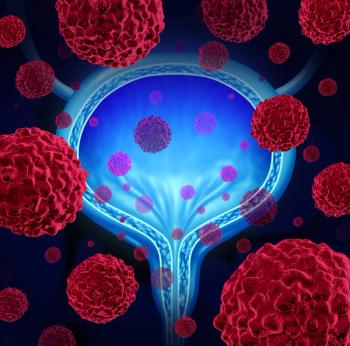
Pembrolizumab plus gemcitabine and concurrent hypofractionated radiotherapy to treat patients with MIBC demonstrated safety and efficacy.
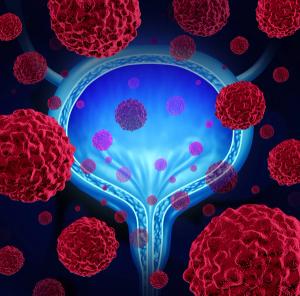
Published: December 7th 2020 | Updated:

Published: April 13th 2021 | Updated:

Published: February 18th 2023 | Updated:

Published: June 7th 2022 | Updated:

Published: December 3rd 2020 | Updated:

Published: June 8th 2021 | Updated: